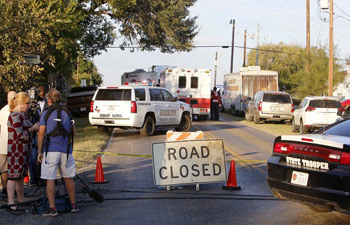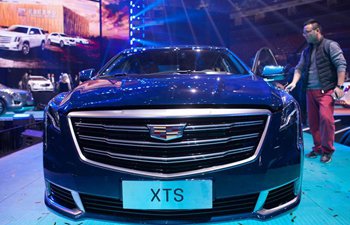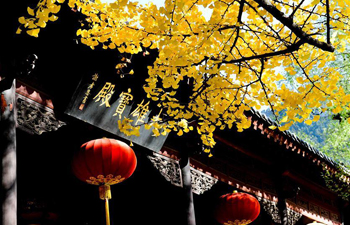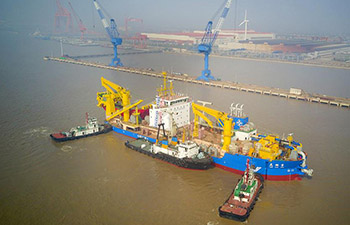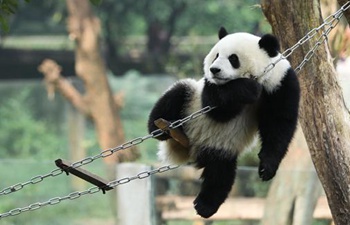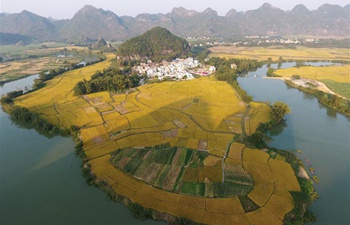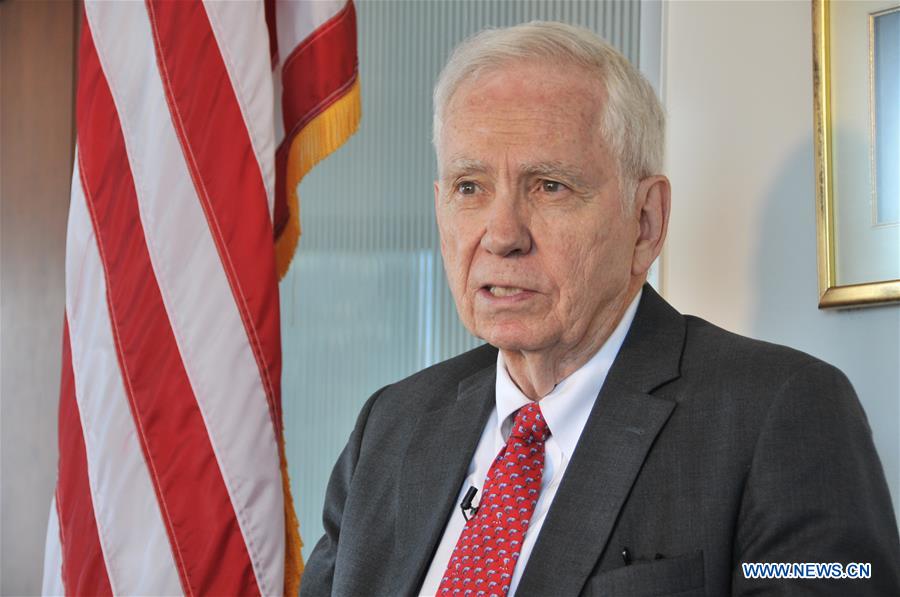
Charles C. Foster, current chairman of U.S.-China Partnerships, an organization promoting ties between the two countries, receives an interview with Xinhua in Houston, the United States, on Oct. 15, 2017. (Xinhua/Liu Liwei)
by Robert Stanton, Gao Lu
HOUSTON, Nov. 5 (Xinhua) -- Charles C. Foster, current chairman of U.S.-China Partnerships, an organization promoting ties between the two countries, was on the host committee when Chinese leader Deng Xiaoping visited Washington, D.C. in 1979 to develop friendly ties with the United States.
Foster accompanied the Chinese delegation to Simonton, a small town outside Houston where they visited a rodeo. There, Deng famously accepted a young girl's gift of a 10-gallon cowboy hat and put it on his head.
"The moment... he did that, I knew that photo was going to symbolize how the world had changed and how our relationship had changed," the eminent attorney said.
Today, the United States and China share a complex relationship, touching on a wide range of economic and geopolitical issues.
"Clearly, our relationships have grown more complex in so many ways. We have so many relationships now that it's almost unimaginable in comparison to what existed in the early 1970s," he remarked.
As China continues its phenomenal growth, nations, both large and small, stand to benefit from business and cultural ties with it.
"It's often joked that if China sneezes, the rest of the world (including) the United States catches a cold," Foster said. "We in the U.S. are dependent upon a strong China economically, just as China benefits from a strong U.S. economy. We both benefit from a stable relationship."
He calls the development of China, which has accelerated in the last five years, nothing short of a miracle. "The Chinese have brought more people out of poverty -- faster than any time in American history -- so China is a huge success story," he said.
SUCCESS WITH CHAIN EFFECT
That success does not exist in a vacuum. Chinese achievements are positively impacting world economies.
"That (success) is great for China and it's great for the world," he said. "China has become a global economic power. What happens in China, just like what happens in the U.S. economy, impacts the world."
The Chinese success story didn't happen overnight. It resulted from new leaders who saw the potential of expanding trade and cultural ties beyond borders.
"When (China) first started its growth following Deng Xiaoping, it was focused internally. And now it's playing a very important role on the international stage economically...helping other developing countries," he said, calling China's success so strong that it will endure shifting political winds and changing global perspectives.
Speaking of China's economic growth, Foster said the report delivered by President Xi Jinping, who is also general secretary of the Communist Party of China (CPC) Central Committee, at the 19th National Congress of the CPC in October, provides a guideline for the future.
"China has to continue its remarkable growth in order to continue to raise the prosperity of all the people of China, not just in the coastal areas but the interior areas as well," he said.
Though the United States has a new president, Foster doesn't see any break in U.S.-China ties.
"No matter who is president of the United States and occupies the White House, in the end they realize that the relationship (with China) is too important not to treat it with a great deal of seriousness to continue to enhance that relationship," he said. "We're going to have our points of disagreements but... the relationship is so important that we'll continue to find ways to get past and resolve those issues in a productive manner."
HISTORICAL CHINESE CONTRIBUTION
According to him, the strength of U.S.-China relations can be seen, for example, in the educational exchanges between the two sides. Today, Chinese students are studying in U.S. universities and some have stayed to work at Foster's law firm.
"We are a nation of immigrants and historically, we have always had immigrants from China," Foster said. "Very early, Chinese immigrants came here to help us bring America together to build the difficult parts of the transcontinental railroad," referring to the 19th-century railroad linking the east and west coasts that used substantial labor by Chinese immigrants.
"As the immigrant communities grow, they succeed economically and then politically, and that becomes another building block between our relationships," he said. "As the Chinese immigrants become successful, they express support and interest in good relationships between our two countries."




